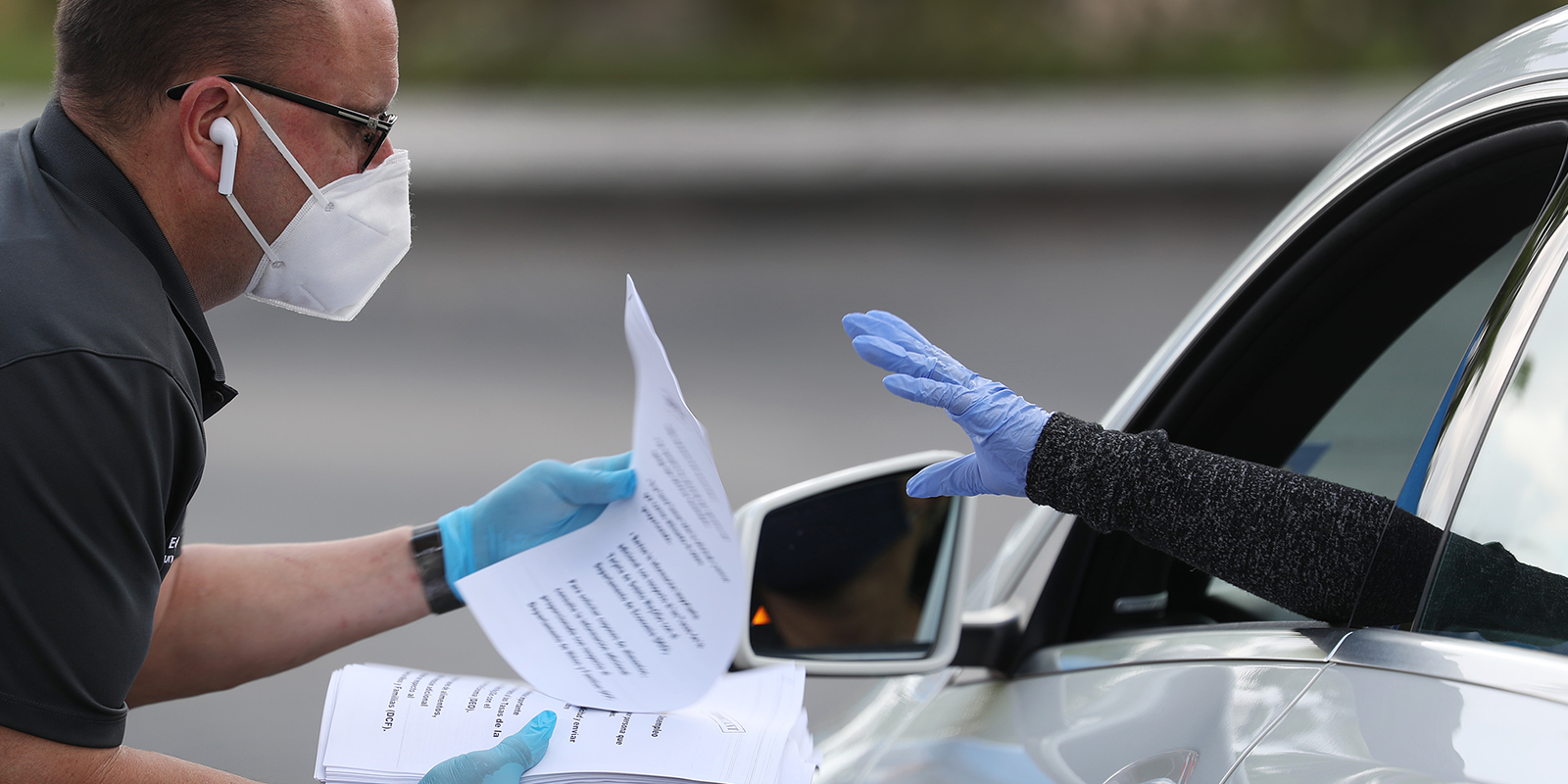Newly unemployed workers across the nation are applying for unemployment insurance in record numbers. But the unprecedented influx in applications has exposed a number of issues crippling state unemployment insurance programs at a time when communities are relying on these funds more than ever.
Earlier today, AFSCME President Lee Saunders, SEIU President Mary Kay Henry, Economic Policy Institute (EPI) President Thea Lee and front-line unemployment claim processors joined together to shine a light on the work these workers are doing each day and the importance of adequate funding and staffing levels for state and local governments.
“The COVID-19 pandemic shows why it’s critical to strengthen and adequately fund our state government programs,” Jason Suggs, an unemployment insurance professional in Maryland and president of AFSCME Local 3641 (Council 3), told reporters. “And that's why we're calling on Congress to provide additional funding for state and local governments in this next relief package.”
Suggs described working overtime due to short-staffing to make sure his fellow Marylanders can afford to buy food and pay their housing costs.
“We’re doing everything we can to make sure we’re taking care of everybody. We grind, we hustle, we’re even coming in on Saturdays. We are determined to help workers ride out these economic shocks beyond their control,” Suggs said.
In mid-March, new unemployment claims skyrocketed from 282,000 to 3.3 million. But that was only the beginning. The following week, it more than doubled to nearly 6.9 million. And earlier today, the U.S. Department of Labor reported another 6.6 million new claims for the week ending April 4. That brings the jobless claims to 16.8 million in a span of three weeks.
“Behind every one of those jobless claims is a family that is having sleepless nights – worried about how they’re going to make the rent or buy groceries or keep the lights on,” Saunders said. “And also behind those numbers is a public service worker committed to making sure people who have been laid off, through no fault of their own, get the help they need.”
The Coronavirus Aid, Relief and Economic Security (CARES) Act and the other two coronavirus response bills provided much-needed assistance to protect Americans and their families, and some economic stimulus during this crisis. However, more fiscal relief is essential to ensure fully functioning public services. In addition, Congress must address the health and safety of all workers.
The speakers on today’s press call outlined the most pressing priorities for working people that Congress must include in a fourth coronavirus response bill – including at least $300 billion in additional direct, unrestricted funds for state and local governments, along with a clear requirement for money to be allocated to localities.
Further, they urged Congress to repeal the CARES Act rule that limits use of the $150 billion Coronavirus Relief Fund to unbudgeted costs directly related to COVID-19 response. This restriction blocks states from addressing the substantial revenue losses governments are experiencing at a time when there is a sharp increase in the demand for services.
“Tragically, tax cuts for corporations and the wealthy over the past decades have eroded our ability to respond to crises like this one,” said Henry. “States and local governments have dramatically thin staff, depleted critical equipment and hampered planning. … Coronavirus didn’t create these problems, but it’s exposing them.”
Lee offered insights on steps we can take to mitigate widespread economic shock in the wake of COVID-19 based on EPI research.
“We are seeing an unprecedented economic catastrophe unfolding,” she said. She added that state and local governments are “reeling from a triple whammy – steep loss in revenues, increased essential expenditures on public health and safety, and limited capacity to borrow.”
